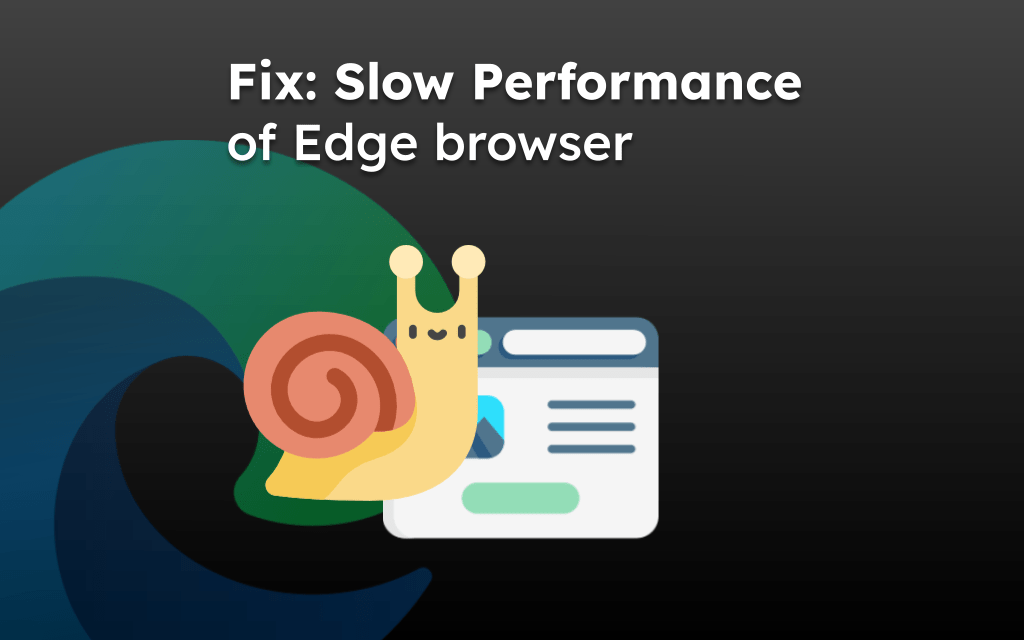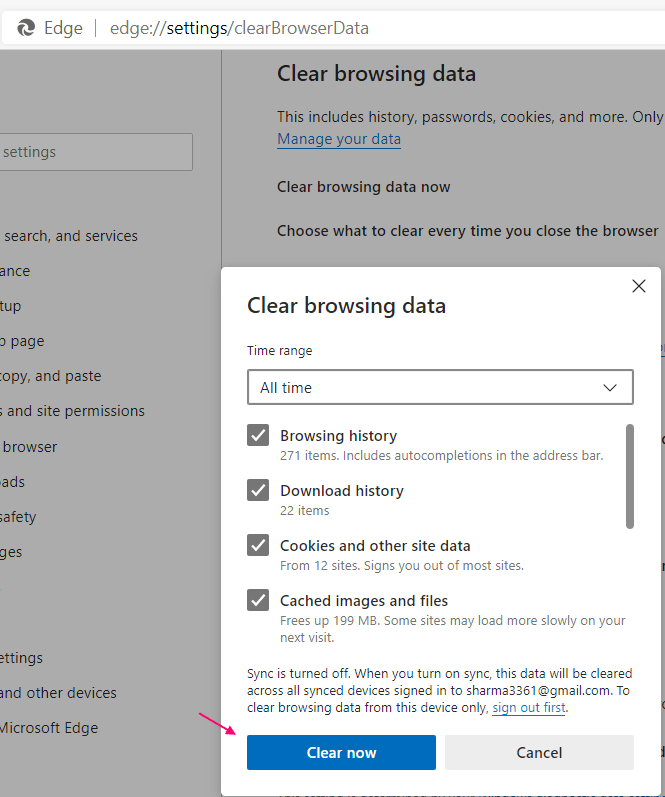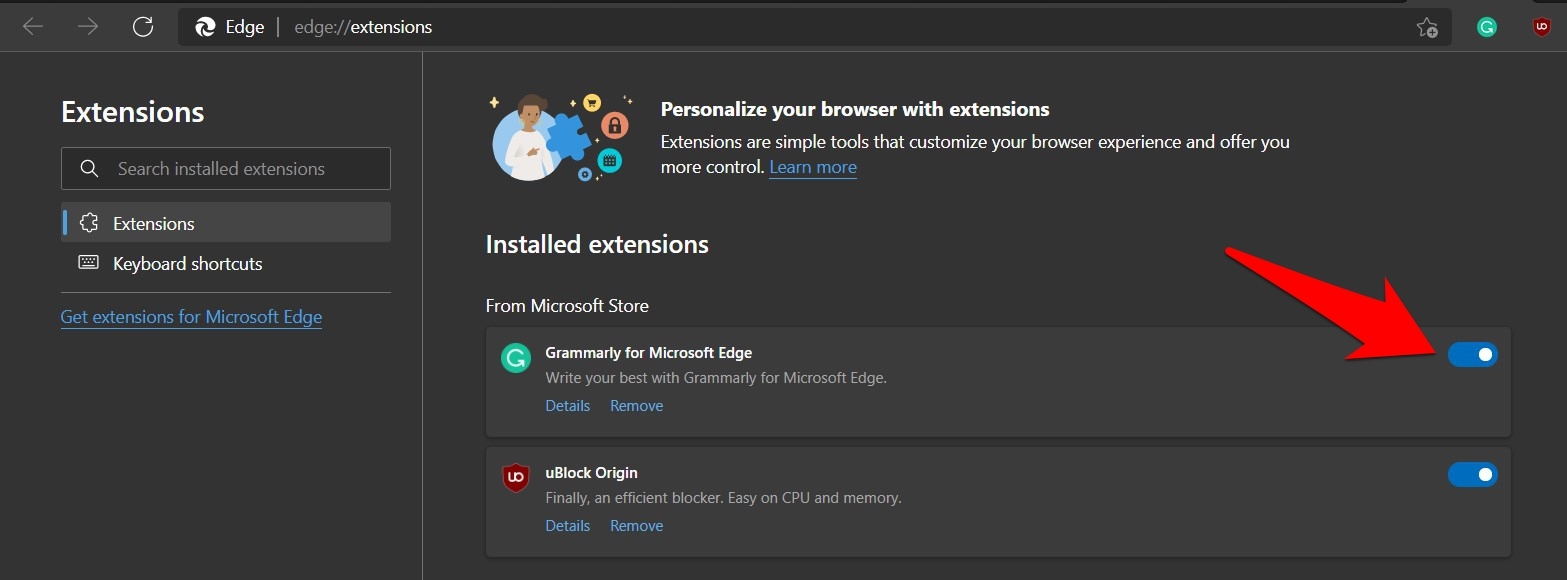Understanding The Slow Performance Of Microsoft Edge After Upgrading From Windows 10 To Windows 11 In 2025
Understanding the Slow Performance of Microsoft Edge After Upgrading from Windows 10 to Windows 11 in 2025
Related Articles: Understanding the Slow Performance of Microsoft Edge After Upgrading from Windows 10 to Windows 11 in 2025
Introduction
With enthusiasm, let’s navigate through the intriguing topic related to Understanding the Slow Performance of Microsoft Edge After Upgrading from Windows 10 to Windows 11 in 2025. Let’s weave interesting information and offer fresh perspectives to the readers.
Table of Content
- 1 Related Articles: Understanding the Slow Performance of Microsoft Edge After Upgrading from Windows 10 to Windows 11 in 2025
- 2 Introduction
- 3 Understanding the Slow Performance of Microsoft Edge After Upgrading from Windows 10 to Windows 11 in 2025
- 3.1 Introduction
- 3.2 Causes of Slow Performance
- 3.3 Impact of Slow Performance
- 3.4 Troubleshooting and Solutions
- 3.5 Frequently Asked Questions
- 3.6 Conclusion
- 4 Closure
Understanding the Slow Performance of Microsoft Edge After Upgrading from Windows 10 to Windows 11 in 2025

Introduction
With the impending release of Windows 11 in 2025, many users are eagerly anticipating the upgrade from Windows 10. However, some users have reported experiencing slow performance with Microsoft Edge, the default browser in Windows 11, after the upgrade. This article aims to provide an in-depth understanding of this issue and offer potential solutions.
Causes of Slow Performance
The slow performance of Edge after upgrading to Windows 11 can be attributed to various factors, including:
-
Compatibility Issues: Edge may not be fully optimized for Windows 11, leading to compatibility issues and performance bottlenecks.
-
Resource Allocation: Windows 11 may allocate more system resources to background processes, leaving less for Edge to operate efficiently.
-
Extension Conflicts: Extensions installed in Edge from the Windows 10 era may not be compatible with Windows 11, causing conflicts and slowdowns.
-
Hardware Limitations: Older or low-end hardware may struggle to handle the increased demands of Windows 11 and Edge, resulting in sluggish performance.
Impact of Slow Performance
The slow performance of Edge can significantly impact the user experience, leading to:
-
Frustrating Browsing: Slow page loading times, unresponsive tabs, and frequent crashes can make browsing frustrating and inefficient.
-
Reduced Productivity: Delays in opening websites, uploading files, and executing tasks can hinder productivity and workflow.
-
Security Concerns: Slow performance can compromise security by delaying the loading of security updates and making the browser vulnerable to attacks.
Troubleshooting and Solutions
To address the slow performance of Edge after upgrading to Windows 11, users can implement the following troubleshooting steps:
-
Update Edge: Ensure that Edge is updated to the latest version to benefit from performance improvements and bug fixes.
-
Disable Extensions: Temporarily disable all Edge extensions to identify any potential conflicts. Re-enable them one by one to pinpoint the problematic extension.
-
Reset Edge: Resetting Edge to its default settings can resolve compatibility issues and remove corrupt files.
-
Optimize Windows Settings: Adjust Windows settings to allocate more resources to Edge. Disable unnecessary background processes and reduce visual effects to free up system resources.
-
Upgrade Hardware: If possible, consider upgrading to newer or more powerful hardware to meet the demands of Windows 11 and Edge.
Frequently Asked Questions
Q: Is the slow performance of Edge a widespread issue after upgrading to Windows 11?
A: While some users have reported experiencing slow performance, it is not a universal issue. The severity and frequency of the issue can vary depending on individual system configurations and hardware capabilities.
Q: What is Microsoft doing to address the slow performance of Edge?
A: Microsoft is actively working on optimizing Edge for Windows 11 and releasing regular updates to improve performance and address compatibility issues.
Q: Are there any other browsers that can be used as alternatives to Edge in Windows 11?
A: Yes, there are several alternative browsers available, such as Google Chrome, Mozilla Firefox, and Opera. These browsers may offer different features and performance characteristics that may suit specific user preferences.
Conclusion
The slow performance of Microsoft Edge after upgrading to Windows 11 in 2025 can be attributed to various factors. By understanding the causes and implementing the troubleshooting steps outlined in this article, users can mitigate the issue and improve the overall browsing experience. It is important to note that ongoing updates and optimizations from Microsoft will play a crucial role in addressing performance concerns.








Closure
Thus, we hope this article has provided valuable insights into Understanding the Slow Performance of Microsoft Edge After Upgrading from Windows 10 to Windows 11 in 2025. We hope you find this article informative and beneficial. See you in our next article!